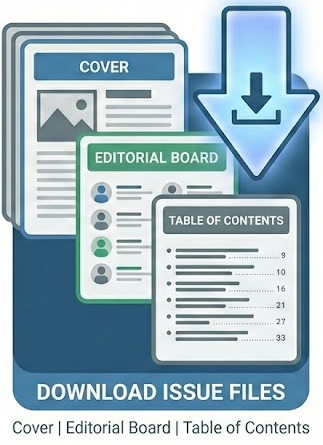Identification of Student Misconception Level Through The Four Tier Dignostic Test as A Result of The Implementation of E-Module Development
DOI:
https://doi.org/10.30736/seaj.v6i1.1029Keywords:
E-Module, misconception, Four Tier Diagnostic Test, Certainty of Response IndexAbstract
Learning in Kurikulum Merdeka guides students not only to wait for information from the teacher, but also to independently obtain good learning resources. Each student's literacy skills will influence their ability to understand material. Students having a misconception still becomes a big threat, therefore the students need specially designed learning media based on materials needed which is listed on the teacher's lesson plan. The learning media was developed in e-modules that can be used both offline and online so as to help reduce misconceptions in the material being studied. This study aims to identify the level of students' misconceptions between classes that use e-modules and those that do not. The research design used a posttest only control group design with questions of the type of four tier diagnostic test. Students answered by google forms and analyzed based on the Certainty of Response Index (CRI) criteria. The results of the implementation of e-modules, that have been developed based on the needs of the teacher's lesson plan, show differences in the level of misconceptions between classes that use it and those who don't. In the experimental class, 33.4% of students stated misconceptions, while in the control class it was 51.7.
Downloads
References
Asri, A. S., & Dwiningsing, K. (2022). Validitas E-Modul Interaktif sebagai Media Pembelajaran untuk Melatih Kecerdasan Visual Spasial pada Materi Ikatan Kovalen. PENDIPA Journal of Science Education, 6(2), 465-473. doi:https://doi.org/10.33369/pendipa.6.2.465-473
A'yun, Q., Harjito, & Nuswowati, M. (2018). Analisis Miskonsepsi Siswa Menggunakan Tes Diagnostic Multiple Choice Berbantuan CRI (Certainty Of Response Index). Jurnal Inovasi Pendidikan Kimia, 12(1), 2108-2117. doi:https://doi.org/10.15294/jipk.v12i1.13302
Dewi, N. M. (2021). Analisis Miskonsepsi Peserta Didik Pada Materi Sistem Pernapasan Manusia. Pensa E-Jurnal : Pendidikan Sains, 9(3), 422-428. Retrieved from https://ejournal.unesa.ac.id/index.php/pensa/article/download/40331/36820
Gurel, & Kaltakci, D. (2015). A Review and Comparison of Diagnostic Instruments to Identify Students Misconceptions in Science. Eurasia Journal of Mathematics, Science & Technology Education, 11(5), 989-1008. doi:https://doi.org/10.12973/eurasia.2015.1369a
Hasan, S., Bagayoko, D., & Kelly, E. (1999). Misconceptions and the Certainty of Response Index (CRI). Physics Education, 34(5), 294-299. doi:10.1088/0031-9120/34/5/304
Mahnun. (2012). Media Pembelajaran (Kajian terhadap Langkah-langkah Pemilihan Media danmplementasinya dalam Pembelajaran). An-Nida, 37(1), 27-35.
Mahrawi, Istikomah, U.,& Ratnasari, D. (2021). Development of E-Book Learning Media Based on Problem Solving in the Materialof the Human Digestive System. Science Education and Application Journal. 3 (2). 75-88. Doi: https://doi.org/10.30736/seaj.v3i2.433
Muslih, L., Supardi, Z. A. I., & Budijastuti, W. (2022). Development of Science E-Modules on the Functions of Living Organs Topic to Improve Science Literacy for Elementary School Students. Science Education and Application Journal, 4(1), 46-60. Doi: https://doi.org/10.30736/seaj.v4i1.544
Nadziroh, F. (2021). Identifikasi Miskonsepsi Siswa Menggunakan Metode Certainty Of Response Index (Cri) Pada Materi Larutan Penyangga Kelas Xi Mipa Sma Mta Surakarta. Jurnal Pendidikan Kimia, 10(1), 65-72. doi:https://doi.org/10.20961/jpkim.v10i1.40008
Puspitarini, D. (2022). Blended Learning sebagai Model Pembelajaran Abad 21. Ideguru : Jurnal Karya Ilmiah Guru, 7(1), 1-6. doi:https://doi.org/10.51169/ideguru.v7i1307
Puspitasari et al. (2019). Identifikasi Miskonsepsi Materi Jaringan Tumbuhan pada Mahasiswa Pendidikan Biologi di Salah Satu Universitas di Surakarta. Bioedukasi, 10(2), 171-178. doi:http://dx.doi.org/10.24127/bioedukasi.v10i2.2494
Puspitasari, Suyono, & Astutiningtyas. (2021). Efektivitas Penerapan E-Modul dalam Meningkatkan Pemahaman Siswa Kelas VIII pada Materi Pola Bilangan Masa Pandemi. Journal of Mathematics Education and Learning, 1(3), 274-286. doi:https://doi.org/10.19184/jomeal.v1i3.26773
Prafitasari, A.N., Pradhana, R.B. (2023). Contained Testing: Comparison of Scientific Literacy Ability of Middle and High School Students Aged 15 Years Old. Science Education and Application Journal (SEAJ). Vol 5(2), 148-157. Doi: https://doi.org/10.30736/seaj.v5i2.895
Satriawati, H. (2015). Pengembangan E-Modul Interaktif Sebagai Sumber Belajar Elektronika Dasar Kelas X SMKN 3 Yogyakarta. Yogyakarta: Universitas Negeri Yogyakarta.
Sugiyono. (2010). Metode Penelitian Kuantitatif Kualitatif dan R & D. Bandung: Alfabeta.
Suhermiati, I. (2015). Analisis Miskonsepsi Siswa pada Materi Pokok Sintesis Protein Ditinjau dari Hasil Belajar Biologi Siswa. Bioedu, 985-990. Retrieved from https://ejournal.unesa.ac.id/index.php/bioedu/article/view/13429/12328
Syahrul, Y. (2019). Penerapan Design Thinking pada Media Komunikasi Visual Pengenalan Kehidupan Kampus bagi Mahasiswa Baru STMIK Palcomtech dan Politeknik Palcomtech. Jurnal Bahasa Rupa, 2(2), 109-117. doi:https://doi.org/10.31598/bahasarupa.v2i2.342
Wicaksono, K., Priantari, I., & Prafitasari, A. (2021). Four Tier Diagnostic Tes Instrument to Identify Misconceptions for Grade IX Junior High School Students in Jember Regency. Bioeducation Journal, 5(2), 111-121. doi:https://doi.org/10.24036/bioedu.v5i2.324.

Downloads
Published
How to Cite
Issue
Section
License
Copyright (c) 2024 Aulya Nanda Prafitasari, Pipit Candrasari

This work is licensed under a Creative Commons Attribution-ShareAlike 4.0 International License.
Authors who publish with this journal agree to the following terms:
- Authors retain copyright and grant the journal right of first publication with the work simultaneously licensed under a Creative Commons Attribution-ShareAlike 4.0 International License that allows others to share the work with an acknowledgment of the work's authorship and initial publication in this journal.
- Authors are able to enter into separate, additional contractual arrangements for the non-exclusive distribution of the journal's published version of the work (e.g., post it to an institutional repository or publish it in a book), with an acknowledgment of its initial publication in this journal.
- Authors are permitted and encouraged to post their work online (e.g., in institutional repositories or on their website) prior to and during the submission process, as it can lead to productive exchanges, as well as earlier and greater citation of published work (See The Effect of Open Access).

This work is licensed under a Creative Commons Attribution-ShareAlike 4.0 International License.








